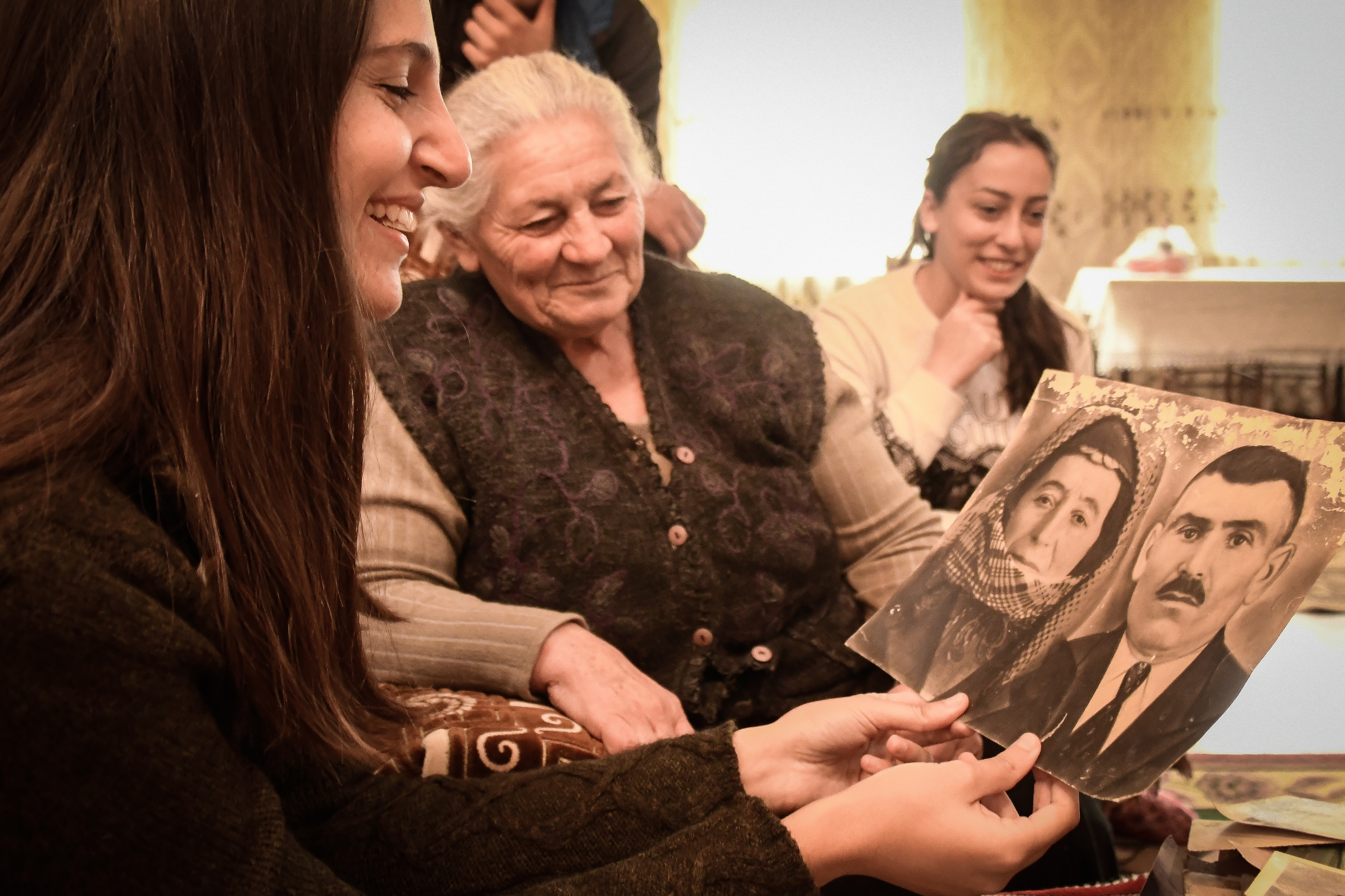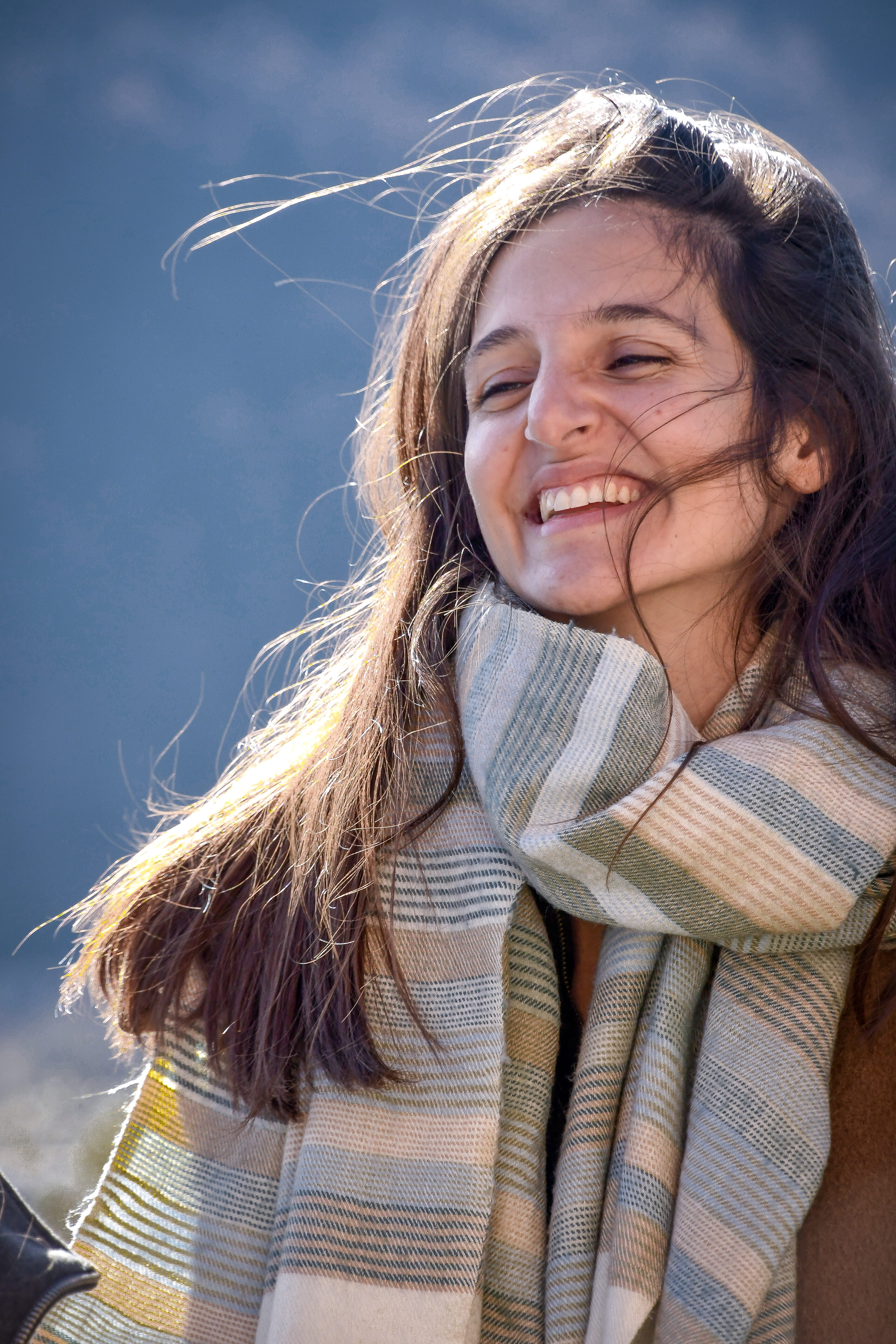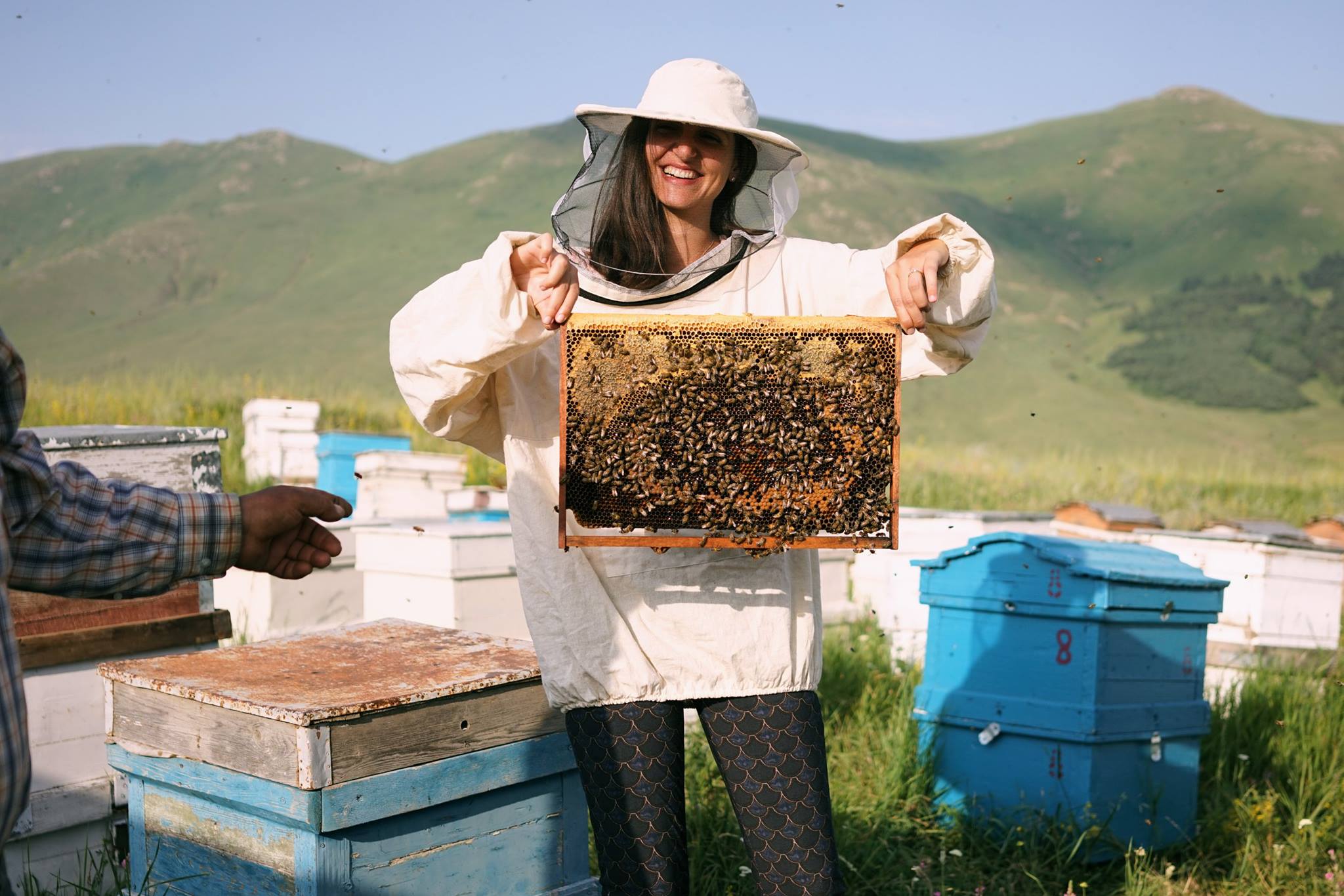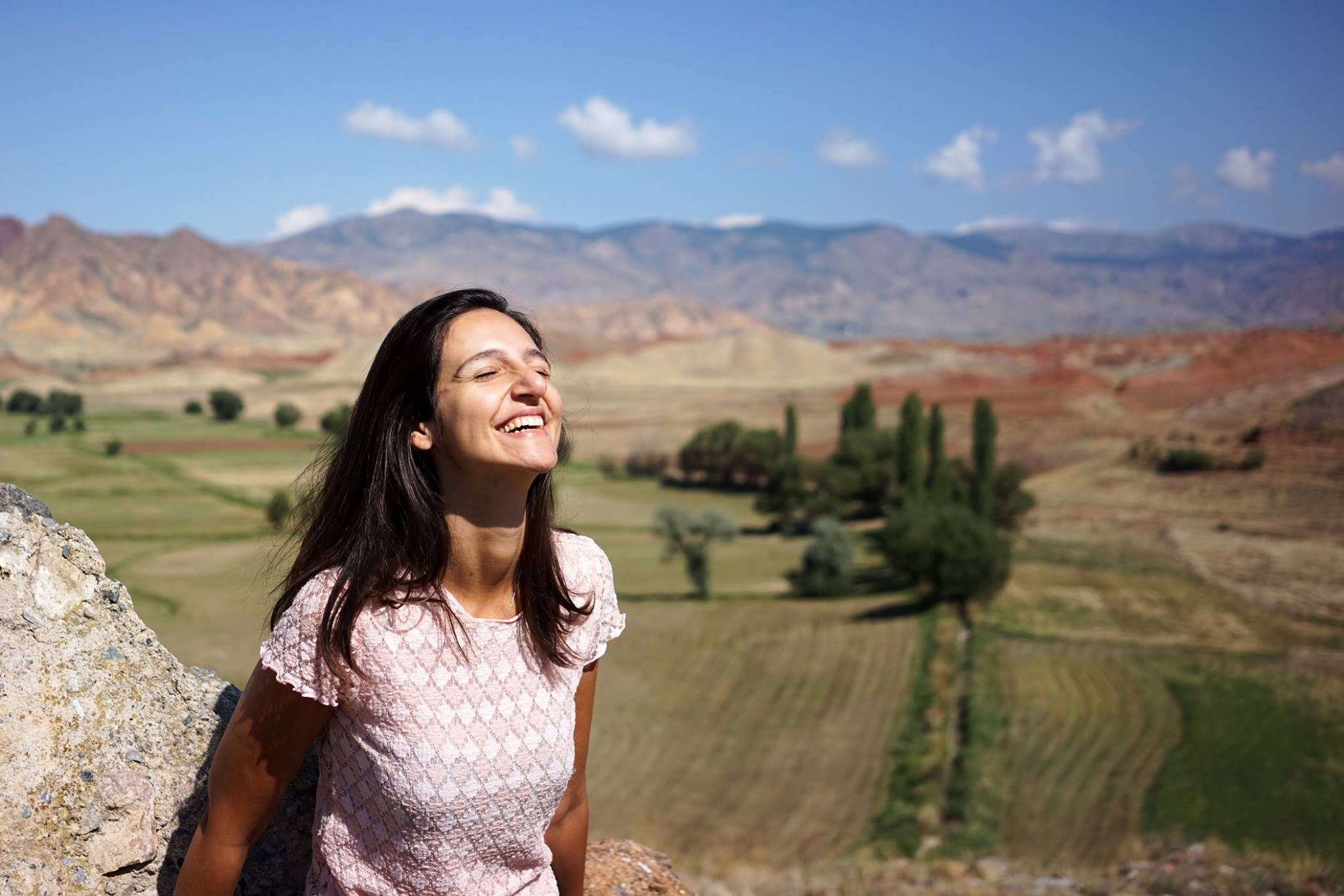My Road
13.06.2019
6 min read
Repat Story
Sarine Arslanian: A Storyteller in Armenia
-webp(85)-o(jpg).webp?token=63ba8dd936f743ad548f30490fbe9f04)
Sarine Arslanian is a Belgian-Armenian who moved here in July 2018. Her love for the homeland was formed within her family, rather than within the Armenian community of Belgium. She and her family established a direct connection to their homeland; they visited Armenia more times than she can count.
“Keeping our Armenian identity and culture alive was very important for my family. Growing up in Belgium, every word I spoke at home was Armenian. The food we ate was Armenian. We celebrated Armenian holidays and followed Armenian customs and traditions.”

As a young girl, Sarine loved adventures and discoveries, and devoured one book after the other. Her adventurous side evolved as she grew older, and she began travelling extensively. After obtaining a Bachelor’s degree in Cultural Studies and Social Anthropology and a Master’s degree in Development Studies in the UK, she set off and lived in Indonesia, Rwanda and Guatemala until she arrived at her current destination: Armenia.
“I didn’t decide to move to Armenia, Armenia decided for me. I came here to lead a 3-week workshop in cultural storytelling at TUMO, thinking I’d stay for 5 weeks altogether since I also wanted to see for myself what the overall atmosphere and mood was like after the revolution. But then, with the Francophonie summit around the corner, I extended my stay for another 2 months, and when I was meant to take my flight back, I just couldn’t. Instead of postponing once again, I told myself: “Who am I lying to? How many times do I have to postpone my flight to accept I’ve actually moved here?” That’s the story. That’s how I moved to Armenia. It happened organically.”
Sarine recalls making her first Armenian friends when she visited at a younger age. She met both locals and diasporans and kept in touch with them throughout the years. She says she had never properly experienced being a part of an Armenian community, and she’s grateful she experienced that in her homeland.

Keeping the field of opportunities open, Sarine tries not to have any expectations and prefers spontaneity. The multi-talented woman is not only a writer, but she’s also a documentary film director and co-founder of PATMI Cultural NGO. She’s currently working on a novel and has 2 documentary films in the making.
“I love telling stories. When I write, I’m fully present and immersed in my writing. I become my characters. I feel their pain, their love, their sorrows and happiness. I experience life with them. I only write from a space of love and compassion. It’s not a mental process. I have a vision, a message I want to share. So I know where I’m heading, but I have no idea what’s going to happen along the way. Events unfold, and the stories and words naturally flow through me. For me, filmmaking is simply another means to convey messages, and a powerful and far-reaching one that is.”
PATMI, on the other hand, is a whole new story. She and co-founder Naira Harutyunyan came up with the idea and established the organization in November 2018. PATMI brings together youth and artists to breathe new life into Armenian villages through storytelling, art and education. They collect people’s stories from locals, mainly from the elderly, to preserve the local folklore and oral history, and publish them. Later, these stories are brought to life through vivid, multi-colored murals. PATMI organizes art and storytelling workshops and teaches English in the villages to create opportunities for cultural exchange to bridge gaps and bring about social change.

“All of our work is done to promote community and socio-economic development in rural Armenia. PATMI encourages the youth to dream bigger, think outside the box and reconnect with their own roots on a deeper level to better move forward in life.”
Many people encounter funny incidents in Armenia which usually involve misunderstandings due to language differences. Sarine’s incident definitely stands out.
“A friend and I were visiting a family in a village near Talin. Very hospitable and welcoming people, full of fascinating stories. We picked vegetables from their garden for lunch, which we cooked and ate together. We basically spent the whole day together. At some point, I needed to use the bathroom. Like in many other village houses, the toilets were outside. So this family showed me the way to the small wooden cabin they had built themselves. Inside, you had old-style squat toilets. Nothing fancy. Only some rough wooden planks positioned over a pit in the ground. So I went in and squatted. Within seconds, a chicken fell on my head! A chicken, out of nowhere, imagine! With one foot near my eye, the other on my head, she began clucking very loudly. She then jumped down and started running around me. So there I was, stuck in a one-square-metre wooden cabin with a new, crazy friend. I had to think quick: either I opened the door and let the chicken out, hoping nobody would see me naked - as you may know, Armenian villages are quite conservative - or I continued peeing with a chicken running around like crazy. I decided to go with the first option, and, thankfully, there was no one outside. When I stood up again, I saw the chicken had laid an egg!”

Sarine experienced a genuine moment of feeling at home which truly made her feel like this is where she comes from.
“I visited Herher with my TUMO students; a small, remote village we had never even heard of before. There, we met a 91-year old beekeeper whose son or nephew, I can’t remember, said he’d take us to the local monastery. At first, I said no. I didn’t want the kids to write about ancient churches and religion in Armenia - so much has already been said about the topic. But when the old man said we’d have to hike for about 1.5 kilometers to get there, and there wasn’t even an actual trail to take us there, we went with him. The old monastery was built out of sight, to protect it from invaders throughout the ages and to preserve the energy of the place. When we got closer, we saw a steep hill, and on top, there was the monastery. My students stared at me in confusion, and the old man, who was walking with a cane, said: “If I can do it, you can do it too.” So we all climbed to the top. The view was breathtaking. I needed a moment for myself so I sat down, the monastery behind me, with the rocky mountains and the river stretching into the distance as far as the eye could see. Soon, my mind melted away, and I dropped into my heart. I spotted an eagle flying closeby. Something inside me told me to follow the eagle’s trajectory, which I did. There, on the mountain opposite me, I saw the face of a lion, as if an artist had carved the rocks. But obviously, this was nothing man-made; only a natural wonder. And my family name means just that; family of lions. Also, the national coat of arms consists of an eagle and a lion. It was very symbolic. Within seconds, I felt my ancestors’ presence all around me. I could feel them in the fresh air caressing my skin, in the flowing river below, in the whispers of the wind. There, in the vastness of nature, I realized I was home. And it didn’t matter no more that I came from Western Armenia. I didn’t need to look any further. This was home.”
Annie Akkam
-
Armenian by Choice
-webp(85)-o(jpg).webp?token=67c1ef9733155840058be1c3cf71a754) 19.12.20248 min readThe Golden Vine House: A Crossroads of Past and Present, Armenian and Basque
19.12.20248 min readThe Golden Vine House: A Crossroads of Past and Present, Armenian and Basque

-webp(85)-o(jpg).webp?token=b1cb111a56e1834ffd8f0229030f8815)
-webp(85)-o(jpg).webp?token=35bc085be51a8c3206a26e1725b41703)
-webp(85)-o(jpg).webp?token=7850fc34cc9cf28cd5843af5cf1f9ea4)